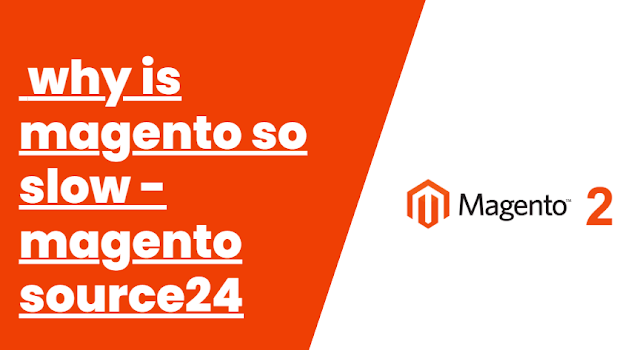why is magento so slow - magento source24
There can be several reasons why a Magento website might be slow. Here are some common factors that can contribute to slow performance:
- Hosting environment: Magento is a resource-intensive platform, and if you are using shared hosting or have inadequate server resources, it can slow down your website. Ensure that you have a dedicated or cloud-based hosting environment optimized for Magento.
- Configuration and optimization: Magento offers numerous configuration options, and if they are not set up properly, it can affect performance. Make sure your Magento installation is properly configured and optimized for performance, including enabling caching mechanisms, minimizing database queries, and enabling flat catalog and indexing.
- Theme and extensions: Poorly coded or resource-heavy themes and extensions can significantly impact your website's speed. Opt for lightweight themes and extensions from reputable sources. Regularly review and disable any unused or unnecessary extensions to reduce the load on your website.
- Large media files: High-resolution images, videos, and other media files can slow down your website. Optimize your images by compressing them without sacrificing quality, use lazy loading techniques, and consider offloading media files to a content delivery network (CDN) to reduce server load.
- Inefficient code: Customizations or poorly coded extensions can lead to inefficient code that slows down your website. Review your customizations and extensions to ensure they are optimized and follow Magento's coding best practices.
- Traffic and concurrent users: A sudden surge in traffic or a high number of concurrent users can overwhelm your server resources and slow down your website. Ensure that your hosting environment can handle the expected traffic and consider scaling up your resources when necessary.
- Lack of caching: Magento provides various caching mechanisms to improve performance. Make sure caching is enabled and properly configured to reduce the load on your server and minimize database queries.
- Outdated version: Using an outdated version of Magento can result in performance issues. Regularly update your Magento installation to the latest stable version to take advantage of performance improvements and bug fixes.
- Database optimization: A large and unoptimized database can slow down your Magento website. Optimize your database by cleaning up unnecessary data, enabling database indexing, and ensuring regular database maintenance.
- Network and third-party services: Slow network connections or issues with third-party services integrated into your website, such as payment gateways or shipping calculators, can impact your website's performance. Monitor and optimize the performance of these services to minimize any bottlenecks.
It's important to identify the specific bottleneck affecting your Magento website's performance. Conducting regular performance audits, monitoring server resources, and using profiling tools can help pinpoint the exact cause and take appropriate steps to optimize your website.

